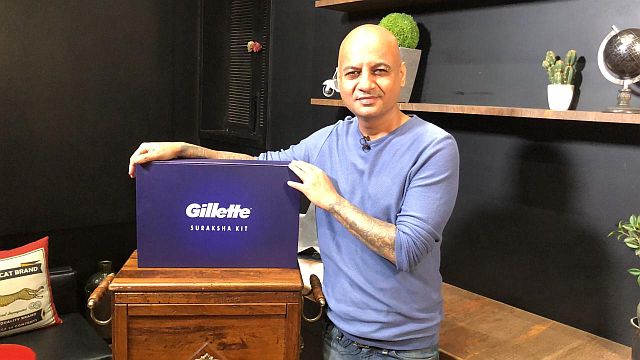CSR News: Rajasthan Govt moves SC Against Circular Excluding CMRF from CSR
The Rajasthan government has approached the Supreme Court, challenging the validity of a circular by the Centre, excluding a special fund, created under the CM Relief Fund from receiving donations as corporate social responsibility, for the purpose of mitigating effects of COVID-19 pandemic.
It has reported that the State claimed the April 10 circular, allowing ‘PM Cares Fund’ and disallowing ‘CM’s Relief Fund’ to receive such contribution, was unconstitutional and went against the principle of cooperative federalism.
A bench of Chief Justice S A Bobde and Justices M R Shah and A S Bopanna issued notice to the Union government, seeking its response on the original suit filed under Article 131 of the Constitution, related to a dispute among the states and between the State and the Centre.
In its plea, the Ashok Gehlot government submitted that it has created a special ‘Rajasthan CMRF COVID-19 Mitigation Fund’ on March 29 for countering the effects of the pandemic. However, on April 10, a circular issued by the Ministry of Corporate Affairs caused an apprehension that the said CMRF won’t qualify as Corporate Social Responsibility (CSR) expenditure.
“In order to allay such apprehension and to declare and hold that CMRF shall fall within the CSR Funds, the present suit under Article 131 of the Constitution, is being preferred,” it said.
The ‘Rajasthan CMRF COVID-19 Mitigation Fund’ was created with the aim and objective to make available funds at grassroots levels for meeting the emergency situation to provide for laboratory testing, ventilators, protective equipment, masks, sanitisers, medical and non-medical essential equipment and medicines. Besides, it was to provide for rations, food packets, transportations, medicines and maintenance of person affected by the pandemic in Rajasthan.
However, the April 10 circular by the Ministry of Corporate Affairs stated that contribution made to ‘PM CARES Fund’ would qualify as the CSR expenditure while the donations received to ‘Chief Minister’s Relief Fund’ or ‘State Relief Fund for COVID-19’ would not qualify as such, it said.
“This is manifestly irrational and frustrates the main objective i.e. alleviation of COVID-19. It would not only be violative of equal protection of laws enshrined under Article 14 of the Constitution but also unjust and palpably arbitrary,” the petition filed by advocate Sandeep Kumar Jha said.
Source: Deccan Herald
Gillette launches Barber Suraksha Programme to help #GroomTheirFuture
Gillette India has been a long-standing partner of the barber community. Gillette and barbers have a special bond as partners, and together they are a part of the essential fabric that grooms everyone, every day. In a world gripped by the pandemic, the impact on barbers has been profound as shutters stayed closed and the incomes are affected. The brand has launched the ‘Barber Suraksha Programme’ aimed at educating, protecting and providing resources to the barber community as they return to business.
To help #GroomTheirFuture, as part of the Barber Suraksha Programme, Gillette will provide an insurance cover of up to INR 1 lakh to barbers, educate them on safe operations via videos co-created with renowned hairstylist Aalim Hakim and provide them back-to-business support via specially curated product kits covering requirements for 2 months. To start with, Gillette will support 50,000 barbers across the country.
At a time when people are concerned about revisiting barber shops, Gillette will co-create education videos with Aalim Hakim on safety and hygiene measures, that will help barbers create a safe salon experience. These videos will cover concerns regarding maintaining social distancing while attending to clients, effective hand cleansing and tool disinfecting techniques among others. This will enable barbers to protect themselves and their customers.

Gillette has also curated a special product kit comprising a face shield, sanitizer and Gillette products covering their two-month supply of essential products. Given the nature of their work, the barber community is at a high risk of COVID-19. Keeping this in mind, Gillette India will provide 50,000 barbers with a special Health insurance cover of up to INR 1 lakh under its Gillette Barber Suraksha programme.
Karthik Srivatsan, Country Category Leader – Grooming Indian Sub-Continent at P&G said, “Gillette has been a proud partner of barbers across the country. The barber community is among those whose income have been severely impacted due to the COVID-19 outbreak. The nature of their work also puts them at a higher risk of infection. During these tough times, Gillette wants to stand in solidarity with the barber community as they reopen their business. Through Gillette’s ‘Barber Suraksha programme’ we want to provide the much-needed back-to-business support to barbers across the country through education, protection and health assistance resources. We hope we can help them in a small but meaningful way as they get back to business.”
As a part of the campaign, Gillette India has also launched a film supported by Brand Advocate Sachin Tendulkar that takes consumers through a nostalgic journey reminiscing the various instances they must have experienced at barbershops. Through the film, Gillette showcases the holistic support that is being given to barbers to enable them to get back to business.
Brand Advocate Sachin Tendulkar said, “While many have been affected by the lockdown, our barber friends are among those who have taken the maximum impact. Gillette Barber Suraksha is timely and needed right now. It’s heart-warming to be a part of it to make a positive difference to their lives and truly #GroomTheirFuture.”
https://www.instagram.com/p/CBun2MLgVPr/









